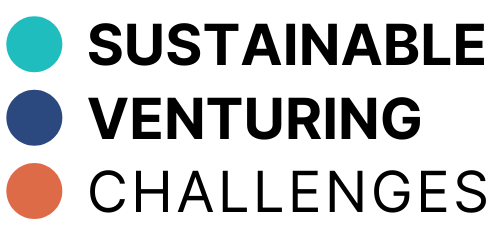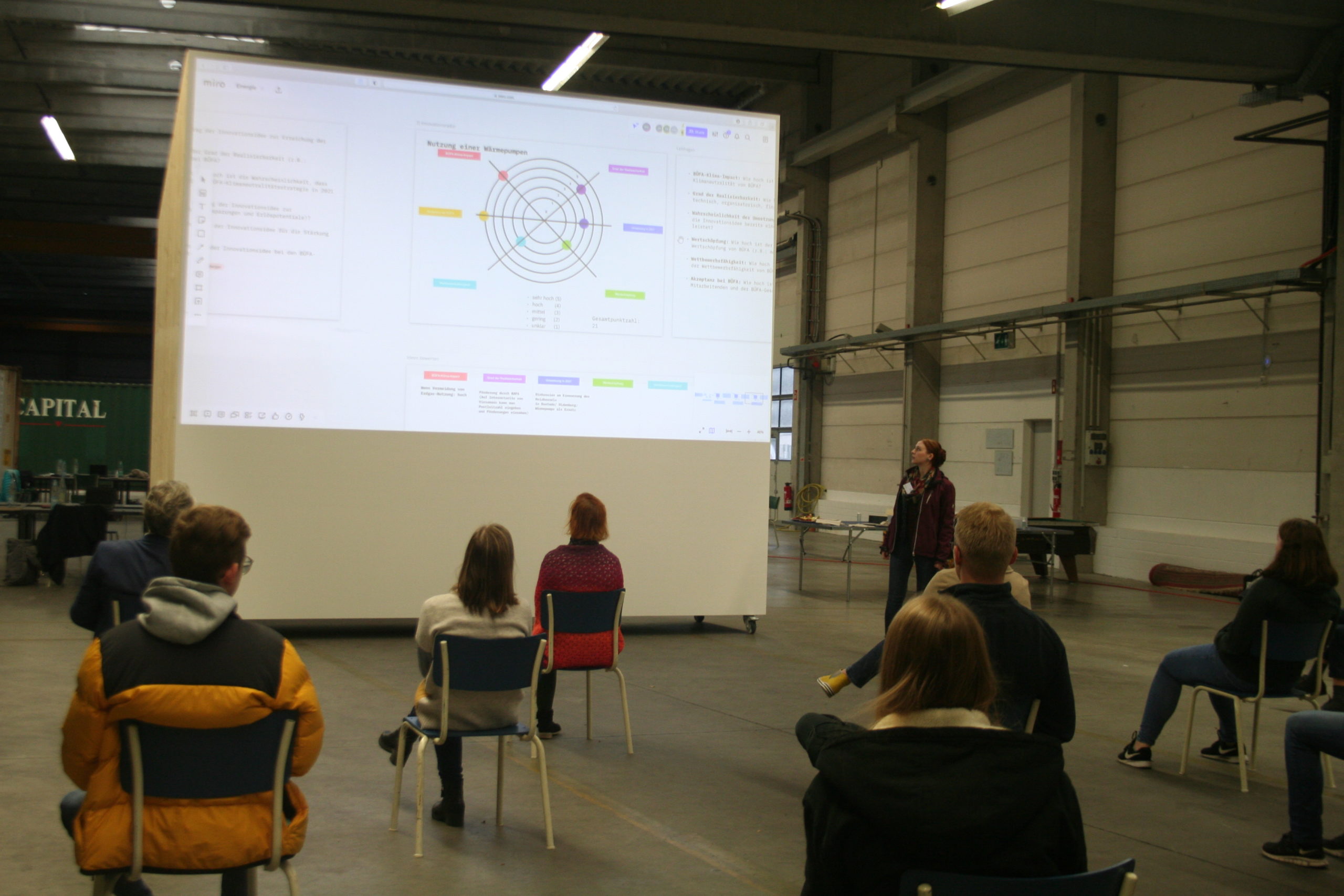“Good preparation on both sides helps to keep realistic expectations”: Yvonne Burmann, BÜFA
Yvonne Burmann is Business Development Officer at BÜFA GmbH & Co. KG, Germany, a company active internationally in the business areas of chemicals, cleaning and composites. BÜFA has been a lead business partner in the ScaleUp4Sustainability project, which developed and carried out innovative challenge-based learning formats in green venturing. We spoke to Yvonne Burmann about her company’s motivation to participate in the project as a challenge provider and her personal experience in her role as company representative.
Why did your company decide to collaborate with a university in a sustainable venturing challenge?
Yvonne Burmann: For us at BÜFA, it is always important to get impulses and insights from different perspectives regarding sustainability. In cooperation with a university, you get in touch with highly motivated students that have interesting ideas and are really into sustainable lifestyles. They ask challenging questions that make you think in a different way about things and provide you with new perspectives.
Which ideas and solutions did the student teams develop and what stood out to you in particular?
Yvonne Burmann: In the frame of our cooperation, we worked a lot on the topic of CO2-emissions and how our company can reduce them. There were many great ideas – from implementing a pub quiz for sustainability to veggie days in the canteen. We also looked at the challenge of integrating renewable energy sources at our facilities and in our processes, as well as making the logistics process more sustainable. We were amazed by the different solutions the students came up with, but what stood out most was the motivation and the intensity with which the students worked on the topics.
Yvonne Burmann (front row) listens to a student presenting their team work at the Green Business Idea Jam – a one day ideation workshop leading on to the ‘Climate Challenge’. © University of Oldenburg
Have you implemented any of the solutions developed by the students, and if so, how?
Yvonne Burmann: One team of students developed the idea of providing training in efficient driving for our truck drivers. As we see great potential for impact in this idea, we are planning to implement it in 2022. Regarding compensation of the greenhouse gas emissions we cannot avoid or reduce, we have selected some of the solutions the students developed for implementation.
What exactly was your role during the challenge?
Yvonne Burmann: I mainly acted as coordinator inside the company. I was the point of contact for the university when there were new projects and together, we decided on suitable topics and made respective preparations. After the kick-off, I prepared the challenges and found partners inside the company willing to support the students with the needed information and advice.
What expertise and insights have the students and academic staff brought to your company and how has this benefitted your development and innovation processes?
Yvonne Burmann: There were a lot of critical questions like “Why are you doing it this way?”, “Why don’t you do it like that?”, “What is the reason you don’t do things differently?” That makes you think about certain processes and work flows in a different way. “Because we always did it this way” is not a good enough answer, so you really have to think about it deeply and sometimes come to the conclusion that “There is no reason, so let’s just change it.”
“Regular communication is very important. It is also crucial to make clear at the very beginning of a challenge project what the circumstances are and what both sides can expect as an outcome.” – Yvonne Burmann
In your view, how to best ensure that university-industry collaboration is successful?
Yvonne Burmann: Regular communication is very important. It is also crucial to make clear at the very beginning of a challenge project what the circumstances are and what both sides can expect as an outcome. As a company, to prepare challenges and participate in these kinds of projects can sometimes be time-consuming and requires quite some resources. So, good preparation on both sides helps to keep realistic expectations and gives both sides all the information they need to properly work on the project.
Would you recommend other companies to collaborate with universities in challenge-based learning formats as a corporate partner, and if so, why?
Yvonne Burmann: Yes, I would recommend it. You receive new perspectives and get the chance to have someone very motivated work on topics that might not fit in the daily company business, but are important nevertheless. You also get the opportunity to work with the next generation and be up to date with the latest academic findings and insights on a range of different topics such as sustainability, all whilst supporting students in gathering essential industry experience. It might also help you find and connect with motivated students who are interested in writing their bachelor or master thesis in your company or who might even choose you as their future employer.

powered by ScaleUp4Sustainability
Carl von Ossietzky University of Oldenburg
Department of Business Administration, Economics and Law
Adj. Prof. Innovation Management and Sustainability
Ammerländer Heerstr. 114-118, 26129 Oldenburg, Germany
Legal notice and data protection

The platform was created as part of the ScaleUp4Sustainability project. ScaleUp4Sustainability (Project Reference: 601150-EPP-1-2018-1-DE-EPPKA2-KA) is funded by the Erasmus+/Knowledge Alliance Programme of the European Union.


